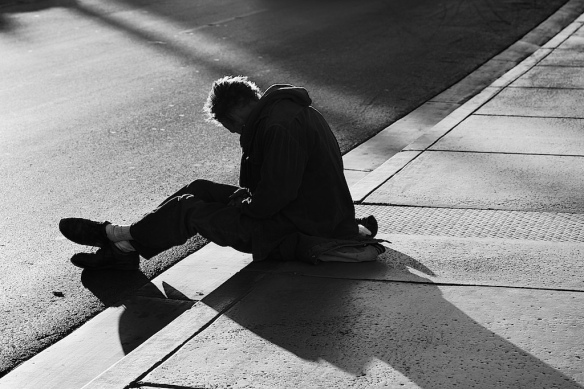
We humans are funny creatures. Whether it’s in our classrooms, our jobs, our social functions, even our churches, we all tend to seek out opportunities for some kind of recognition. Even if we are not actively seeking it we certainly appreciate it when it’s given. This can start in the playpen when we are toddlers. If you grew up with siblings, and you’re the youngest like I was, then you know what it’s like to try and get attention. I remember getting frustrated with being the littlest in the family, so much so that I finally took umbrage at the small salad fork my mom gave me one night at dinner! I demanded a grownup fork, and I wanted it now!
We start sorting ourselves out from the nursery right into daycare, then grade school, and to infinity and beyond. Some of us find our hook, some of us never do. Some of us are still looking well into adulthood. Some finally give up.
My hook was art. I was that kid who drew. It helped me with teachers and gave me an identity early on in life. Sometimes, actually a lot of times, it got me into trouble. I was that kid who drew on all of his test papers in the first grade. In fourth grade history Mrs. Wooten took my awesome dragster I was drawing from me and I never saw it again! She told me I would never ad up to anything drawing all the time, but that’s another story.
Society has sculpted nearly all of us into creatures of status. High status, low status, even no status, but a people who acknowledge the effects of status whether we like it or not. I think sometimes we just really want to matter at the end of the day. I’ll confess right now I can be guilty of that.
We either pursue power or get behind the powerful people we endorse. Sometimes, maybe even most of the time, we feel powerless. I think maybe the arguments I see in social media are a product of this thinking. We so desperately want to be right sometimes. But I want to step back and ask where is the power in that? Or maybe I should ask, WHY is the power in that?
What we have allowed ourselves to miss is how much power every one of us actually possess. Even the least among us have the equipment to do mighty things. We all have a vast toolbox of power. We all have the power to bring healing to others. These tools are small, common, and powerful. A smile, a hug, eye contact, silence, these are just some of the most powerful things we all possess.
You can accomplish more with a simple act of kindness than “being right” will ever get you in an argument. Even one simple smile at the right time has the power to save a life. When you feel like you have no power left in this world always remember there is someone out there who could desperately use something as simple as a listening ear. Might I suggest that we stop trying to be right and just focus on healing. Because right now we need more healing in this country, and in this world than we need anything else at all, and I mean anything.
Dare to be wrong. Dare to be vulnerable. Dare to use your seemingly small yet magnanimous gifts. Remember what Maya Angelou said, “People may not remember exactly what you did, or what you said, but they will always remember how you made them feel.”
If you believe in God, trust me God really doesn’t care if you’re right. God cares if you have mercy. So many of us show up for church and admonish God with the words: “Kyrie eleison, Christe eleison.” God have mercy, Christ have mercy. If God can show me of all people mercy, then surely I can do the same for anyone I meet. Surely any of us can do this.
Next time you pass along a news story, or share a meme in social media ask yourself, “Does this bring healing?”

 The news today along with all the fuss in social media can be more than overwhelming. Emotions seem to be ruling the day on all sides of every issue. We are becoming more polarized with each and every outburst. I have my opinions on our current leadership in this country, but I am doing my best to restrain from adding to the clatter. When I look at the world and see so much disagreement and so much anger I have to ask the question that might help me to rise above the noise to hear the answer: What does God want?
The news today along with all the fuss in social media can be more than overwhelming. Emotions seem to be ruling the day on all sides of every issue. We are becoming more polarized with each and every outburst. I have my opinions on our current leadership in this country, but I am doing my best to restrain from adding to the clatter. When I look at the world and see so much disagreement and so much anger I have to ask the question that might help me to rise above the noise to hear the answer: What does God want?